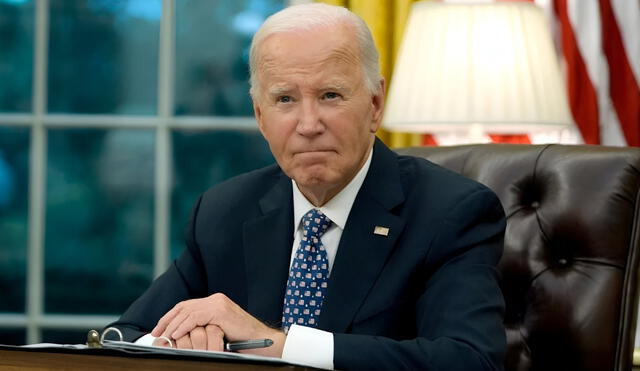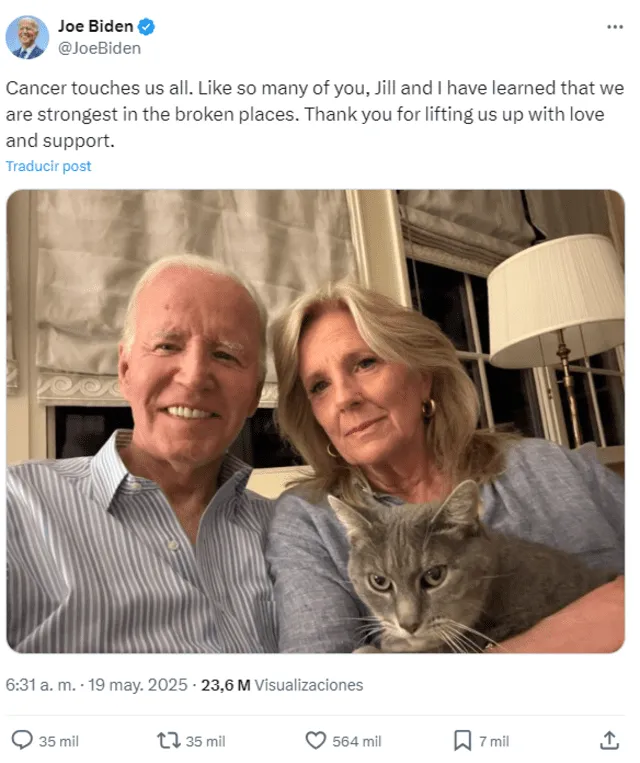Biden's 2014 Prostate exam was His last before advanced Cancer diagnosis
President Biden’s delayed prostate cancer screening ignites a deeper conversation about preventive care, healthcare access, and the balance between public transparency and personal privacy—raising questions that could reshape how America views health in leadership.

Former President Joe Biden had a PSA (Prostate-Specific Antigen) test in 2014 while he was vice president. A spokesperson said Biden never had a diagnosis of prostate cancer prior to a previous announcement. On Sunday, it was announced that Biden, 82, had aggressive prostate cancer that had spread to his bones—a fact that even he was surprised by, despite carrying a history of suspicious specimens. His last physical in February 2024 lacked a PSA test, and reportedly, doctor Kevin O’Connor, the White House physician, may have drawn opinions on getting a PSA test based on the report of his results.
Medical experts now speculate that Biden had an unknown-producing cancer for many years, and possibly during the beginning period of his presidency. The American Academy of Family Physicians and the U.S. Preventative Services Task Force recommend against screening for prostate cancer as a routine for men over 70 since there is a risk of false positives and tragedy surrounding complications that arise from treatment. Former aides and staff dismissed suggestions of a coverup, and pointed out that a nearly 30-year-old diagnosis such as this at the POTUS would likely have come up sooner due to the insider group that is called on the world. The physician O'Connor is known for discussing willingly.

ALSO SEE: Florida Man Chris Brown charged with attempted murder after allegedly shooting His Three Sons
Biden’s Cancer diagnosis fuels debate on screening delays and political division
The delay in diagnosis has led to a discussion about accommodating medical guidelines and the potential harm in delaying diagnosis for life-threatening conditions. Many in the field support some degree of shared decision-making with patients depending on a number of health factors. Ironically, President Donald Trump, who is now 78 years old, continues to be screened for PSA even though he is well past the recommended age. Last time Biden was known to be screened, he was either 71 or 72 years old while serving as Vice President.
Biden's recent announcement disclosing his cancer diagnosis has evoked a powerful emotional response as well as political commentary, drawing attention to the public and political reaction to a personal health crisis in polarizing times. While some people expressed support, others weaponized the news, demonstrating the fracture of national empathy. This also crystallizes concerns over whether America today can extend authentic, bipartisan empathy, especially for someone like Biden, whose presidency still feels new and politicized.
Biden’s health revelation sparks National dialogue on preventive care and public transparency
The revelation also emphasizes the need for regular health assessments and the implications of not doing so: especially for powerful, high-profile people in stressful environments. It also illustrates many of the challenges public figures face in determining what personal, health and medical decisions to maintain publicly or privately. The discussion is still ongoing about how to best weight medical recommendations against the unique life experiences of each individual and any clear medical advantages to early identification and detection.

President Biden shares a heartfelt message on resilience and gratitude following his cancer diagnosis, acknowledging the support received from the nation. Photo: Joe Biden X account
As the nation reflects on Biden's health story, the broader discussion is not strictly political, but also invokes the access to healthcare in this country, the mode of preventive medicine, and the humanity of leadership. The discussion may influence future discourse around healthcare policies and initiatives and the value placed on personal medical care.












